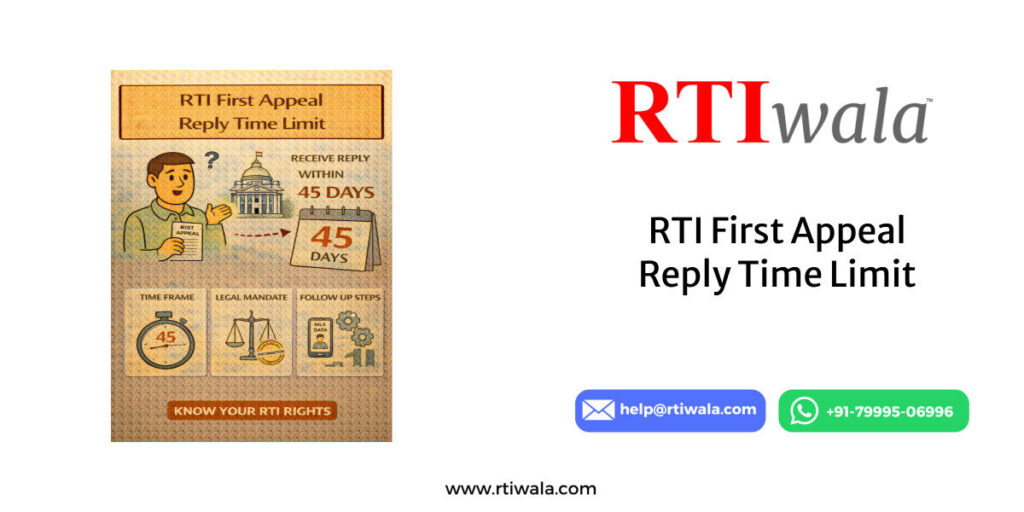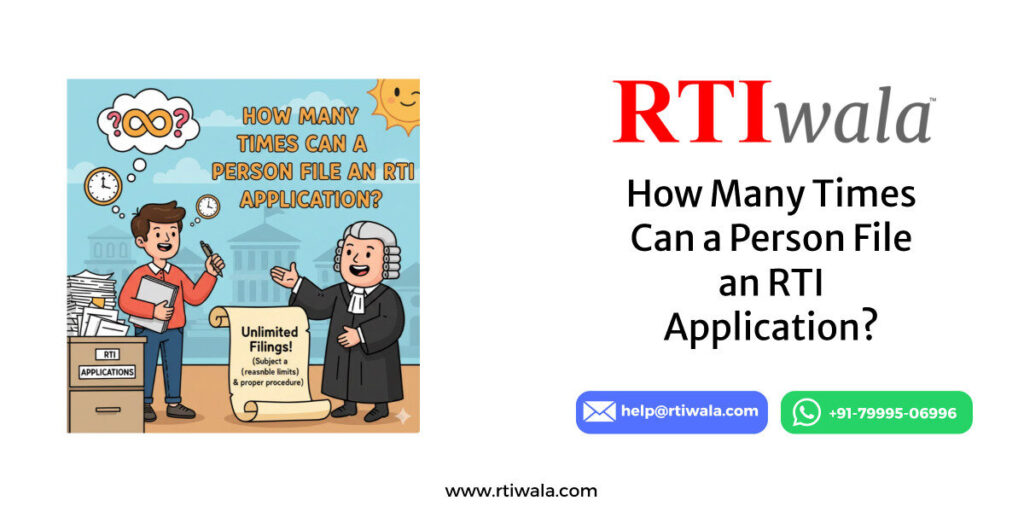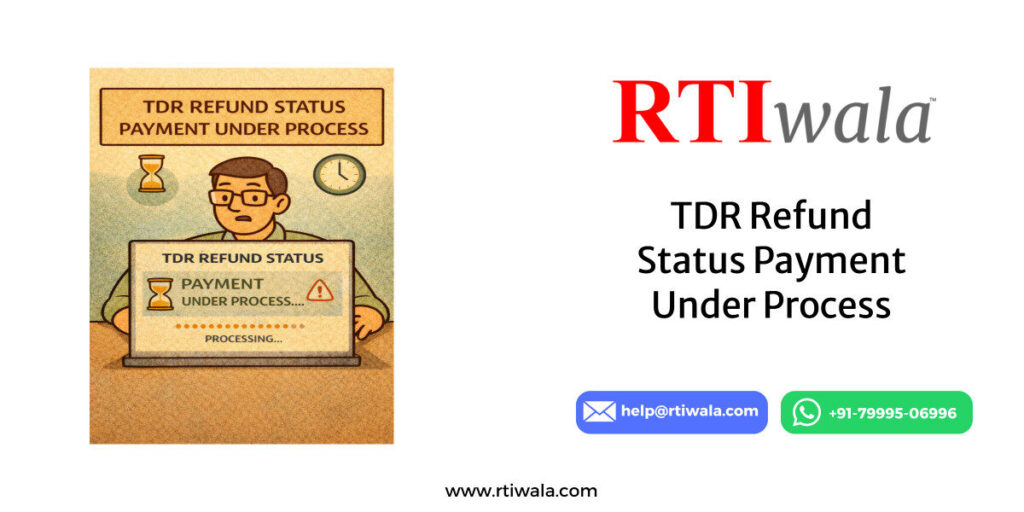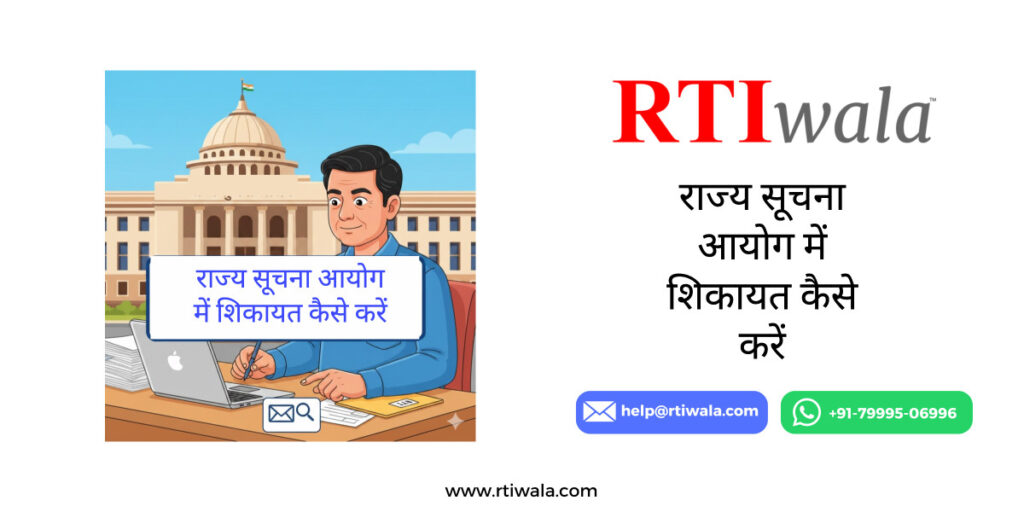Table of Contents
- Introduction: Why Court Order Copies Are Important
- Can Court Orders Be Obtained Through RTI?
- Benefits of Filing RTI for Court Order Copy
- Step-by-Step Guide: How to File RTI Online for Court Orders
- Fear Factor: What Happens If You Don’t Use RTI?
- Common Mistakes Made by RTI Applicants
- Why Choose RTIwala for RTI in Court Matters
- Real-Life Examples of RTI for Court Orders
- FAQs on RTI for Court Order Copy
- Conclusion: File RTI for Court Orders Safely with RTIwala
1. Introduction: Why Court Order Copies Are Important
A court order copy is often needed for appeals, enforcement of rights, or proof in legal and personal matters. But court offices are infamous for delays, clerical errors, and missing files. Citizens sometimes wait months or even years to get certified copies of orders they urgently need.
The Right to Information (RTI) Act, 2005, empowers citizens to demand such information directly. Filing an RTI application can help you obtain a certified copy of a court order in a timely manner.
With RTIwala, you can file RTI online in India quickly, avoiding rejection and ensuring proper filing.
2. Can Court Orders Be Obtained Through RTI?
Yes. Under the RTI Act, any RTI applicant can seek:
- Certified copies of final court orders.
- Copies of interim orders passed during hearings.
- Copies of judgments delivered by courts.
- Information on whether an order has been implemented.
Example: A litigant in Delhi used RTI to get a certified copy of an interim stay order that the local court staff had been delaying for weeks.
3. Benefits of Filing RTI for Court Order Copy
- Faster Processing: RTI compels court staff to provide documents within 30 days.
- Legal Weight: Certified copies obtained through RTI are official and admissible.
- Transparency: Helps identify if delays are intentional or due to genuine issues.
- Record Keeping: Ensures you have official documents for future reference.
- Accountability: Prevents court staff from denying or misplacing orders.
4. Step-by-Step Guide: How to File RTI Online for Court Orders
Step 1: Draft RTI Application
Be specific in your request. Example:
“Provide certified copy of order dated XX/XX/2025 passed in case no. ABC pending before Family Court, District XYZ.”
Step 2: Identify Correct Authority
File RTI with the Public Information Officer (PIO) of the concerned court.
Step 3: Pay the Fee
₹10 fee applies. Additional charges may apply for each page of certified documents.
Step 4: Submit Online RTI File
With RTIwala’s online RTI filing service, your application is drafted legally and filed with the right authority.
Step 5: Await Response
By law, a response must be provided within 30 days. If ignored, a First Appeal can be filed.
5. Fear Factor: What Happens If You Don’t Use RTI?
- Missed Deadlines: Without timely court orders, appeals may be dismissed.
- Property or Divorce Cases Delayed: Lack of documents can stall important personal cases.
- Unfair Advantage: The opposite party may proceed while you wait helplessly.
- Financial Losses: Delay in order copies may cost you compensation or settlement rights.
Don’t risk your future by depending only on manual processes. File RTI online with RTIwala to secure your rights.
6. Common Mistakes Made by RTI Applicants
- Filing to the wrong PIO or department.
- Asking vague or emotional questions.
- Forgetting to request certified copies.
- Not following up with First Appeal when no reply is received.
RTIwala ensures your online RTI file is legally accurate, correctly addressed, and effectively tracked.
7. Why Choose RTIwala for RTI in Court Matters
- Legal experts draft RTI applications with precision.
- Correct authority identification avoids rejection.
- Support for First Appeal and Second Appeal.
- Anonymous RTI option for sensitive cases.
- Nationwide coverage across courts and tribunals.
Call Now: +91-7999-50-6996 now!
File RTI Online for Court Orders with RTIwala
8. Real-Life Examples of RTI for Court Orders
- Uttar Pradesh: RTI helped a litigant obtain a long-delayed bail order copy.
- Maharashtra: A divorce applicant used RTI to get interim maintenance orders quickly.
- Tamil Nadu: RTI revealed that a judgment had been typed but not dispatched to the parties.
These examples show how RTI can break bureaucratic hurdles in court processes.
9. FAQs on RTI for Court Order Copy
Q1. Can I file RTI for a certified court order copy?
Yes, you can request certified copies of court orders under the RTI Act.
Q2. How long does it take to get a court order via RTI?
Replies must be given within 30 days of filing your RTI.
Q3. Can I file RTI online in India for court documents?
Yes, through RTIwala’s online RTI filing service.
Q4. What if I don’t get a reply from the court?
You can file a First Appeal with RTIwala’s expert support.
Q5. Is filing RTI safe for court-related matters?
Yes, RTI is a legal right, and RTIwala ensures confidentiality and accuracy.
10. Conclusion: File RTI for Court Orders Safely with RTIwala
Court delays are frustrating, but waiting endlessly for a certified order copy can cause irreparable loss. Filing an RTI application is your legal right and the fastest way to secure documents.
Don’t risk losing appeals or delaying your case further.
With RTIwala, you can file online RTI, track replies, and even file appeals if necessary.
Call: +91-7999-50-6996 now!
Apply for RTI Online Today with RTIwala






















































